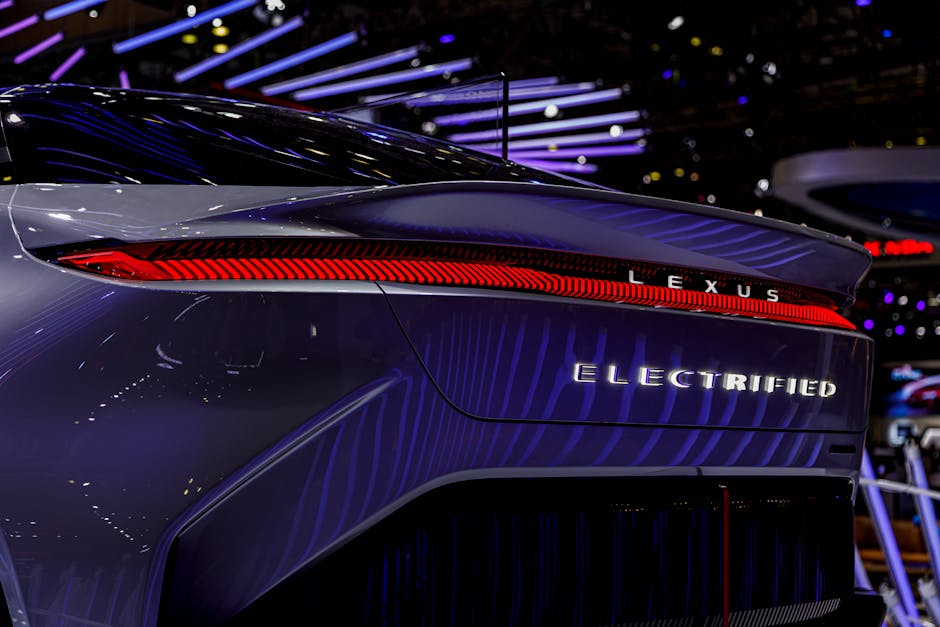Selecting a vehicle in 2025 involves a crucial choice between electric vehicles (EVs) and hybrids. This decision isn’t just about preferences; it’s about aligning with your lifestyle and values. As more people focus on sustainability and efficiency, the vehicle you choose is more important than ever. Through understanding electric and hybrid cars, we can help you make an informed choice for your next purchase.
Key Differences Between Electric and Hybrid Cars
Understanding the distinctions between EVs and hybrids is essential when making a decision. Here’s what sets them apart:
– **Powertrain and Operational Requirements:** EVs run solely on electric power. They offer a fully electric motor experience, providing smooth and quiet rides. No gasoline involved! In contrast, hybrid vehicles combine a traditional gasoline engine with an electric motor. This setup allows hybrids to switch between or combine power sources, which can be handy in various driving conditions.
– **Range and Refueling/Recharging Options:** EVs typically offer 150 to 400+ miles per charge. The recent rise in ultra-fast charging stations means you can recharge quickly. Meanwhile, hybrids rely on gasoline, though plug-in hybrids (PHEVs) offer an electric-only range of 20 to 50 miles before the gasoline engine engages.
– **Emissions Impact and Environmental Considerations:** Electric cars offer zero emissions, making them a preferred choice for environmentally-conscious consumers. Hybrids emit less than conventional gasoline cars but are not entirely emission-free.
– **Maintenance Needs and Costs:** EVs have fewer moving parts and no need for oil changes, resulting in simpler, often cheaper, maintenance. Hybrids possess a more complex system that can lead to higher maintenance requirements due to the combined engine and battery components.
– **Up-front and Running Costs:** EVs generally cost more upfront but are cheaper to run due to lower fuel and maintenance costs. Hybrids are often less expensive initially but can accumulate higher running costs because of gasoline use and maintenance.
Benefits of Electric Vehicles (EVs)
Choosing an electric car comes with a host of benefits that make them attractive to many buyers:
– **Zero Emissions Advantage:** One of the biggest draws of EVs is their entirely zero-emission status. This characteristic allows EV owners the peace of mind that comes with minimizing their carbon footprint.
– **Cost Savings in Daily Operations:** Operating a car that runs on electricity tends to be much cheaper than fueling with gasoline. Energy prices are generally lower, leading to up to 70% more cost-effective transport compared to gasoline vehicles.
– **Simplified Maintenance Requirements:** Fewer moving parts mean fewer things that can break. As EVs do not require oil changes, brake repairs, or other engine upkeep, the costs that typically accumulate over a vehicle’s life are reduced.
– **Enhanced Driving Experience:** EVs offer instant torque, giving you quick acceleration and a unique driving experience. Plus, the silent operation of these cars adds to a relaxed, smooth ride.
– **Advanced Charging Capabilities:** Improvements in battery technology mean ultra-fast chargers can provide around 400 km of range in just 20 minutes, reducing wait times significantly.
Challenges of Electric Vehicles
Despite their many advantages, EVs come with challenges that potential buyers should consider:
– **Higher Initial Purchase Costs:** While prices are coming down, EVs still tend to be more expensive up front compared to hybrids or traditional vehicles.
– **Range Limitations for Long-Distance Travel:** For those who frequently embark on long journeys, the range may be a concern. Although range is improving, EVs might not yet match long-range gasoline vehicles, especially in areas with sparse charging networks.
– **Charging Infrastructure Availability Concerns:** Reliable access to charging stations is crucial. If you’re in an area with limited infrastructure, owning an EV could be inconvenient. Having access to a home charger is becoming essential.
Advantages of Hybrid and Plug-In Hybrid Vehicles
Hybrids and PHEVs offer a mixture of electric and traditional power advantages:
– **Higher Flexibility in Fueling Options:** Combining gasoline and electric power gives hybrids flexibility. With PHEVs, short trips can use electric power only, extending your range between fuel stops.
– **Reduced Emissions Compared to Traditional Gasoline Cars:** Though not entirely emission-free, hybrids emit significantly less CO2 than traditional vehicles, lowering their environmental impact.
– **Lower Entry Cost Compared to Full EVs:** With generally lower purchase prices, hybrids offer a compromise between affordability and greener driving.
– **No Charging Requirement for Standard Hybrids:** Standard hybrids operate without requiring plug-in charging, making them more convenient for those without access to charging points.
– **Potential for Strong Resale Value:** Established hybrid models can retain a good portion of their value, offering a useful investment aspect for owners.
Potential Drawbacks of Hybrids and PHEVs
While hybrids offer many benefits, they are not without downsides:
– **Complexity in Maintenance Due to Dual Systems:** With both an engine and a battery system, hybrids can involve more complex and frequent maintenance needs than EVs.
– **Limited Electric-Only Range for PHEVs:** Plug-in hybrids offer electric-only usage, but only over short distances, often reverting to gasoline for longer travel.
– **Continued Reliance on Fossil Fuels:** While they use less fuel overall, hybrids still rely on gasoline and don’t eliminate fossil fuel use entirely.
Factors to Consider When Choosing
When choosing between an electric or hybrid car in 2025, several considerations can guide your decision:
– **Emissions Goals and Environmental Priority:** Consider if your primary goal is to minimize environmental impact. EVs offer zero tailpipe emissions, aligning with stronger environmental goals.
– **Charging Accessibility and Infrastructure:** Evaluate the availability of charging stations in your area. Access to home charging is especially important for EV owners.
– **Travel Habits and Distances Driven:** Consider your typical travel needs. EVs suit urban environments, while hybrids offer flexibility for varied travel distances.
– **Budget Considerations for Purchase and Operation:** Weigh the trade-off between lower running costs of EVs and lower initial purchase prices for hybrids.
For a more in-depth analysis, check resources from our partners at Business Mag for further insights into economic aspects and personal finance considerations when choosing your next vehicle.
Conclusion: Making the Right Choice
Choosing between an electric vehicle and a hybrid in 2025 depends on personal priorities and circumstances. EVs set the standard for sustainable, cost-effective driving, offering environmental benefits and lower lifetime costs. Hybrids, providing a balance between electric and gasoline experiences, are an excellent transitional option. Your choice should reflect your commuting habits, environmental priorities, and financial situations. By aligning your car with your values, you drive with greater satisfaction and knowledge that you’ve invested wisely in your future.












Leave a Reply